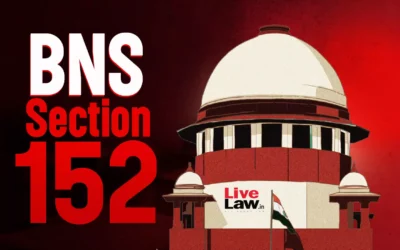BNS Section 202 – Public servant unlawfully engaging in trade
The Indian Penal Code (IPC) Section -167
Understanding BNS-202: Public Servant Unlawfully Engaging in Trade
Public servants are entrusted with important responsibilities, and they are expected to act with integrity. However, some may misuse their positions for personal gain. BNS-202 is a legal provision that addresses this issue by penalizing public servants who engage in trade or business activities despite being legally prohibited from doing so. Let’s break this down in simple terms.
What is BNS-202?
BNS-202 is a law that stops public servants from engaging in trade or business if they are legally restricted from doing so. This ensures they focus on their official duties and avoid conflicts of interest.
Key Elements of BNS-202
To understand this law, let’s look at its main components:
| Element | Description |
|---|---|
| Public Servant | The person must be a government employee or official. |
| Legal Restriction | The public servant must be legally prohibited from engaging in trade. |
| Unlawful Engagement | The public servant must still engage in trade or business despite the restriction. |
Punishment Under BNS-202
If a public servant is found guilty, they can face the following punishments:
| Punishment | Details |
|---|---|
| Imprisonment | Simple imprisonment for up to 1 year. |
| Fine | A monetary penalty may be imposed. |
| Both | The court may order both imprisonment and a fine. |
| Community Service | As an alternative, the court may impose community service. |
Legal Procedure for BNS-202
Here’s how the legal process works for this offense:
| Aspect | Details |
|---|---|
| Cognizable or Non-cognizable | Non-cognizable (police cannot arrest without a warrant). |
| Bailable or Non-bailable | Bailable (the accused can seek bail). |
| Court Jurisdiction | The case is tried by a Magistrate of the first class. |
Why is BNS-202 Important?
This law is crucial for the following reasons:
- Prevents Conflict of Interest: It ensures public servants do not mix their official duties with personal business interests.
- Maintains Integrity: It upholds the honesty and trustworthiness of public service.
- Protects Public Trust: It ensures that public servants work for the people, not for personal profit.
Key Takeaways
- BNS-202 applies to public servants who are legally prohibited from engaging in trade.
- The offense involves unlawfully participating in business activities despite the restriction.
- Punishment includes simple imprisonment (up to 1 year), a fine, both, or community service.
- The case is non-cognizable, bailable, and tried by a first-class Magistrate.
Example Scenario
Let’s take an example to understand this better:
- Case: A government officer, who is legally barred from running a private business, starts a consultancy firm while still in service.
- Outcome: The officer has committed an offense under BNS-202 and can face imprisonment, a fine, both, or community service.
Final Thoughts
BNS-202 is an important law that ensures public servants act ethically and focus on their official duties. If you ever come across a situation where a public servant is unlawfully engaging in trade, remember that the law is there to address such misconduct.
For specific legal advice or assistance, consult a qualified lawyer.

